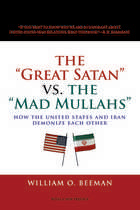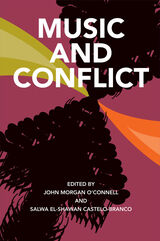3 books by Beeman, William

Expanding American Anthropology, 1945-1980
A Generation Reflects
Edited by Alice Beck Kehoe and Paul L. Doughty
University of Alabama Press, 2012
Expanding American Anthropology, 1945–1980: A Generation Reflects takes an inside look at American anthropology’s participation in the enormous expansion of the social sciences after World War II. During this time the discipline of anthropology itself came of age, expanding into diverse subfields, frequently on the initiative of individual practitioners. The Association of Senior Anthropologists of the American Anthropological Association (AAA) called upon a number of its leaders to give accounts of their particular innovations in the discipline. This volume is the result of the AAA venture—a set of primary documents on the history of American anthropology at a critical juncture.
In preparing the volume, the editors endeavored to maintain the feeling of “oral history” within the chapters and to preserve the individual voices of the contributors. There are many books on the history of anthropology, but few that include personal essays from such a broad swath of different perspectives. The passing of time will make this volume increasingly valuable in understanding the development of American anthropology from a small discipline to the profession of over ten thousand practitioners.
[more]

The Great Satan vs. the Mad Mullahs
How the United States and Iran Demonize Each Other
William O. Beeman
University of Chicago Press, 2008
For more than twenty-five years, the United States and Iran have been diplomatically estranged, each characterizing the other not only as a political adversary, but also as devious, threatening, and essentially evil. According to William O. Beeman’s provocative book, The “Great Satan” vs. the “Mad Mullahs,” such demonization is a self-fulfilling prophecy, as both countries have embraced exactly the policies and rhetoric that would particularly threaten or insult the other. Drawing on his experience as a linguistic anthropologist, Beeman parses how political leaders have used historical references, religious associations, and the mythology of evil to inflame their own citizens against the foreign country, and proposes a way out of this dangerous debacle.
“William Beeman’s analysis of dissonant perceptions of Iran and the USA is compelling and important. . . . I am particularly grateful for this work.”—James Peacock, University of North Carolina at Chapel Hill
“[Beeman] is more interested in informing the reader than in impressing his peers. The other strength of the book lies in the author’s knowledge of Iranian history and culture. . . . It challenges the reader and forces him to question stereotypes about Iran and Washington’s perspective on the country.”—Abbas William Samii, Middle East Journal
“William Beeman’s analysis of dissonant perceptions of Iran and the USA is compelling and important. . . . I am particularly grateful for this work.”—James Peacock, University of North Carolina at Chapel Hill
“[Beeman] is more interested in informing the reader than in impressing his peers. The other strength of the book lies in the author’s knowledge of Iranian history and culture. . . . It challenges the reader and forces him to question stereotypes about Iran and Washington’s perspective on the country.”—Abbas William Samii, Middle East Journal
[more]

Music and Conflict
Edited by John Morgan O'Connell and Salwa El-Shawan Castello-Branco
University of Illinois Press, 2010
This volume charts a new frontier of applied ethnomusicology by highlighting the role of music in both inciting and resolving a spectrum of social and political conflicts in the contemporary world. Examining the materials and practices of music-making, contributors detail how music and performance are deployed to critique power structures and to nurture cultural awareness among communities in conflict.
The essays here range from musicological studies to ethnographic analyses to accounts of practical interventions that could serve as models for conflict resolution. Music and Conflict reveals how musical texts are manipulated by opposing groups to promote conflict and how music can be utilized to advance conflict resolution. Speaking to the cultural implications of globalization and pointing out how music can promote a shared musical heritage across borders, the essays discuss the music of Albania, Azerbaijan, Brazil, Egypt, Germany, Indonesia, Iran, Ireland, North and South Korea, Uganda, the United States, and the former Yugoslavia. The volume also includes dozens of illustrations, including photos, maps, and musical scores.
Contributors are Samuel Araujo, William Beeman, Stephen Blum, Salwa El-Shawan Castelo-Branco, David Cooper, Keith Howard, Inna Naroditskaya, John Morgan O'Connell, Svanibor Pettan, Anne K. Rasmussen, Adelaida Reyes, Anthony Seeger, Jane C. Sugarman, and Britta Sweers.
[more]
READERS
Browse our collection.
PUBLISHERS
See BiblioVault's publisher services.
STUDENT SERVICES
Files for college accessibility offices.
UChicago Accessibility Resources
home | accessibility | search | about | contact us
BiblioVault ® 2001 - 2024
The University of Chicago Press









